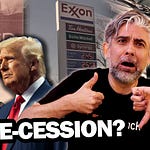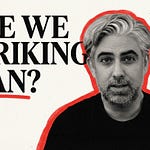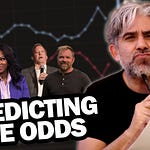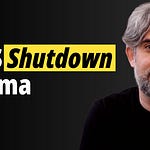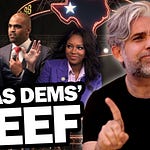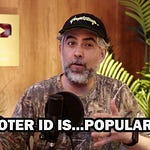Jimmy Kimmel is currently on indefinite leave from his late-night show after a string of events involving remarks he made about Charlie Kirk, a response from the FCC, and a decisive call from Disney leadership. This all unfolded quickly and, frankly, explosively. Brendan Carr of the FCC went on Benny Johnson’s podcast and said Kimmel’s comments were some of the “sickest stuff” he’s heard — and strongly implied that the FCC could take action against affiliate stations airing the show. That’s not subtle, and even if Carr didn’t spell out a punishment, the intent was clear enough to light a fire.
What wasn’t initially emphasized — but I think is even more relevant — is what Carr said at the end of that podcast appearance. He laid the pressure squarely on affiliate stations, reminding them that it’s their licenses that are under the FCC’s purview. And it wasn’t long before two affiliate groups, Nexstar and Sinclair, pulled Kimmel from their airwaves. That’s a big move. Deadline later reported that Disney’s Dana Walden personally told Kimmel his show would be preempted. Sources say Kimmel refused to apologize, and Disney feared that letting him go further might make the controversy even worse.
Disney’s version, delivered through Deadline, painted it as a measured decision — that they were protecting Kimmel from himself. But the reality is, affiliate pressure likely had more to do with this than the FCC ever did. Nexstar, for example, owns affiliates in places like Hartford, Augusta, Rockford, and Sioux City. These aren’t New York or LA. These are markets where a majority of the viewership is conservative. Nexstar and Sinclair didn’t just blink. They jumped — and demanded an apology and even donations to Turning Point USA before they'd consider letting Kimmel back on air. That’s not just a request. That’s an ultimatum.
Capitol Hill responded almost immediately. Eric Swalwell wore a Jimmy Kimmel hat on CNN. Jasmine Crockett called for his return. The concern from Democrats is clear — they see this as a chilling of speech, a federal agency leaning on a private company to silence a critical voice. And Kimmel has long been one of the most visible anti-Trump figures in mainstream media. This isn’t out of nowhere. It’s part of a longer arc — one that started when his monologues became Claptor-heavy political salvos, and even his own writers started peeling off.
Here’s what I think. Carr’s comments went too far. I’ve listened to that podcast more than once. Maybe he meant to be more cautious, but it didn’t land that way. When you hold a job like FCC commissioner, your words carry weight — and in this case, they were taken very seriously. That said, I also don’t think this was a one-man takedown. Kimmel has probably been a thorn in the side of these affiliate stations for years. This may have just been the opportunity they were waiting for.
These affiliate networks serve a lot of red-leaning districts. That’s just reality. And when Kimmel’s show becomes a lightning rod, they have every incentive to bail — especially when broadcast TV isn’t the financial powerhouse it used to be. ABC and Disney might be saying they want Kimmel back on air, but I think they’re daring him to quit. This could easily end with a quiet settlement and a new direction for the network. Twenty-two years is a long time. Maybe too long for a show that’s increasingly out of step with its audience — or at least the parts of it that keep the lights on in places advertisers care about.
If this had happened in 2017, I think Disney would have fought. They would have leaned into the resistance branding, defended Kimmel publicly, and gone head-to-head with the FCC. But the landscape has shifted. Those same resistance-aligned outlets that thrived post-2016 have been struggling for attention ever since 2024. Maybe this isn’t a cave to authoritarian pressure. Maybe it’s just chasing a different audience — one that wants less fire and more quiet. Either way, the message is clear. Kimmel’s position isn’t as solid as it used to be. And neither is the appetite for that kind of voice on network television.
Chapters
00:00:00 - Intro
00:04:17 - Jimmy Kimmel
00:31:57 - Update
00:32:50 - Eleanor Norton
00:34:01 - Tariffs Head to Supreme Court
00:35:33 - Erika Kirk
00:38:06 - Interview with Michael Cohen
01:42:11 - Wrap-up



